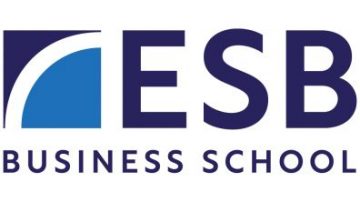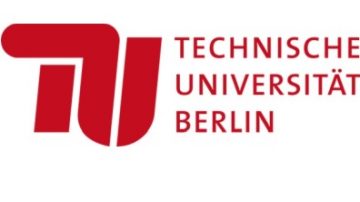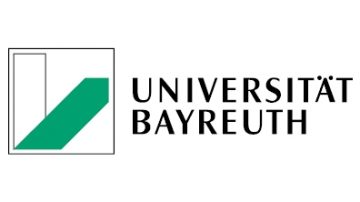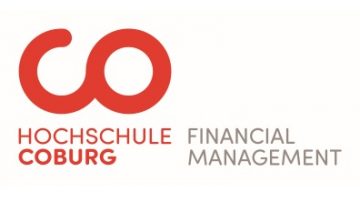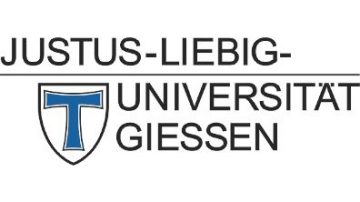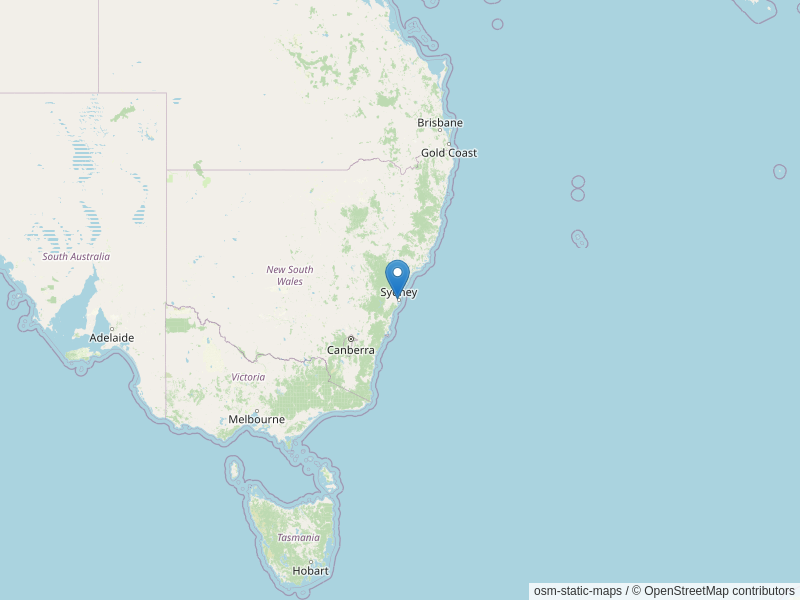FAQs

Please keep in mind that while we’re advising you to the best of our ability and knowledge, no warranty or guarantee regarding the correctness or accuracy of the information is assumed.
- Is there an age limit for DAAD scholarships?
There is no fixed age limit. However, some scholarship programs specify that only a certain amount of time should have elapsed since you received your last degree. For details, please refer to the respective scholarship description. - I have not completed my university degree at the time of application. Am I still eligible to apply for a scholarship?
Yes, in programs for graduates you may apply at the earliest in the last year of your studies and you must satisfy all the academic requirements specified in the Call for Applications by the time the funded studies begin. You must be able to submit your degree certificate before funding begins. - I’m already in Germany. Am I still eligible to apply?
Yes, if you have not been living in Germany more than 15 consecutive months by the time of application deadline. - I am not currently living in my country of origin. Am I still eligible to apply for a scholarship?
Please note that your country of permanent residence or the country in which you have lived in the year before your application is usually of relevance for the application procedure. We strongly recommend that you obtain information and advice and find out which scholarship programs are open to you, and whether you have to apply from your country of residence or country of origin. - I am enrolled in a study program at a German university with the aim of obtaining a qualification in Germany, or I am completing a doctoral degree at a German university. Can I apply for funding abroad?
Under certain circumstances, persons with foreign citizenship can also be considered for funding programs intended for German individuals. Please check the DAAD website for more detailed information on the eligibility criteria (in German only). - Can I apply for a scholarship whatever subject I am studying?
The DAAD offers scholarship opportunities throughout the world that are generally open to all subjects, even though there are some restrictions for certain disciplines such as medicine. There are also subject-specific programs. In the scholarship database, you can select the scholarships that are offered for your group of subjects. - What language skills do I need to apply for a scholarship?
The required language skills generally depend on your study plans and subject: In the arts, social sciences and law, a good knowledge of German is usually expected. For the natural sciences and engineering, and also if English can be spoken at the host institute or if the study program is taught in English, proof of good English language skills may also be sufficient. Depending on country of origin and scholarship program, however, specific language skills may be required. The “Application requirements” in the Call for Applications specifies what requirements these may be. If you wish to learn more about German courses and language examination tests, please visit the German Language Skills section of our website. - I am considering an online-degree / distance learning program in Germany. Am I eligible for a DAAD scholarship?
DAAD Scholarships are awarded to qualified candidates who wish to engage in full-time face-to-face study in Germany. Therefore, students planning to pursue blended learning or distance learning study programs are not eligible for DAAD funding.
- The Call for Applications specifies that a “description of my study plans”, “study proposal” or a “letter of motivation” has to be submitted. What exactly does this mean?
You will find notes on how to write a motivation letter on: “How do I write a letter of motivation?“ - The Call for Applications calls for a comprehensive and precise “description of my research project”. What does this mean?
You will find notes on how to describe your research project on “How do I describe my research project?“ - I would like to improve my German before I arrive in the country. Are there online language courses which I can take in my home country?
Yes, you can learn German online. Find out on the German Language Skills section of our website about the different options that are available for learning German.
Special online German language courses are offered by the Goethe-Institut, for example, or Deutsch-Uni Online (for scholarship holders whose scholarships last longer than 6 months, the DAAD covers the costs of a DUO module.)
- Do I have to have contacts in Germany when I apply?
Yes, if you are carrying out individual research in Germany or – in artistic subjects – wish to continue your education individually, you need an invitation from a German supervisor (see item 2 below).
If you are participating in a structured study or doctoral degree program, you only need to provide information about your chosen program (see “Application procedure” in the Call for Applications). If you already have a contact at your host university, it is also advisable to enclose appropriate proof (e.g. e-mail correspondence). - I need a supervisor for my individual project in Germany. Who can be my academic host?
University teachers or academic teaching staff who work at a state or state-recognized institution of higher education or a non-university research institute in Germany can be hosts. Ideally, host will either be professors or possess equivalent qualifications. - I have found a supervisor for my individual project. What documents do I need from him for the application?Your academic supervisor must confirm that they are willing to help you carry out your research project or doctoral degree in a “Letter confirming academic supervision”, which you must submit with your application. Ideally, the letter of confirmation (informal) from your supervisor
- indicates that the description of your research project and schedule has been discussed,
- confirms that a workplace is available for you, and
- specifies the language that is spoken at the host institute.
- How do I apply?
Application procedures may vary depending on scholarship program. To find out where and how to apply, please read the “Application procedure” section of the Call for Applications.
Please contact us if you have any questions. You can find out where your nearest contact person is in the under the “Contact and advice” tab. - It says in the Call for Applications that I have to apply through the DAAD portal.
- What does this mean?
You have to apply online. To do this, you have to register in the DAAD portal.
Please Visit: www.meindaad.de
First, select the Call for Applications for your chosen scholarship program and then the tab “Application portal” in the Please note that this tab is only visible in the period in which it is possible to apply for this scholarship program or when the DAAD portal is open for applications. - I have a problem with my online application. What can I do?
If technical problems occur, send an e-mail to portaldaad.de. - Which documents do I have to upload to be able to submit an application to the DAAD portal?
Your application is only complete if you submit all the application documents listed in the Call for Applications of the scholarship you are applying for. With the exception of your references and work samples (e.g. DVD), all of these documents must be uploaded to the DAAD portal. In some cases, individual documents (e.g. university certificate) may be submitted at a later date if this is explicitly permitted in the program’s Call for Applications. - Do I receive confirmation that my application has been received?
Yes, as soon as you have submitted your application online, you will automatically receive an email confirming that your application has been successfully submitted and notifying you of a message in the portal’s messaging system. The message confirms that your application has been received.
- What does this mean?
- The Call for Applications states that I have to submit a reference from a university teacher. Who can write a reference for my application? References in scientific subjects should be written by university professors who can provide information about the following:
- How are your academic achievements?
- What are your academic and personal qualities?
- Is your project well planned, feasible and relevant?
- What significance does the scholarship have for your academic and professional career?
- Do I have to apply in German?
Unless stated otherwise in the Call for Applications, you can submit your application either in German or English. Please note that application documents that are not in German or English must be translated either into German or English. The translations do not have to be certified for the application procedure and you may do the translations yourself. In most scholarship programs, translations have to be submitted again in certified form if a scholarship is awarded. - What language certificates do I need when I apply for a scholarship?
You can find out what language certificates you need when you apply for a scholarship in the “Application procedure” section of the Call for Applications. - Do my certificates and transcripts (lists of grades) have to be notarized for my application?
No, not initially. If your certificates and transcripts are not in German or English, you can translate the documents for your application yourself. The DAAD does not usually ask you to submit notarized documents (if a positive decision is made) until after the selection has been made. - When should I send my hard copies of reference or/and application?
For most of our programs we have specified whether it’s a postmark or arrive-by deadline. If not specified, applications that need to be sent to the DAAD New York office are generally subject to postmark deadlines, whereas applications sent to Germany are subject to arrive-by deadlines.
- Who makes a decision about my application?
The selection committee is an independent committee made up of expert US, Canadian, and German If necessary, experts in the respective subject are asked to submit written statements. DAAD employees do not vote in the scholarship election procedure. - According to which criteria does the selection committee make its decision?
Important selection criteria are
- Description of proposal and reasoning_
– for study or research stays and course of continuing education: a convincing and well-planned project (also see “How should I introduce my research project?”)
– for structured study programs or language and short courses: a well justified choice of course (also see “How do I write my letter of motivation?“) - academic achievements
- Description of proposal and reasoning_
- How much is the monthly scholarship payment?
The scholarship payment depends on the applicant’s academic qualifications. It is usually € 650 for those pursuing undergraduate studies, € 750 for graduate studies and around € 1,000 for doctoral candidates and postdocs. Payments for assistant teachers, assistant professors and lecturers are usually € 2,000 and € 2,150 for professors (as of May 2014). You can find an overview of other possible benefits in each Call for Applications. - Who pays for outward and return travel expenses?
Unless travel expenses are covered by another source of funding, the DAAD pays a contribution towards the scholarship holder’s international travel expenses to Germany from the country of their home university. - Can I bring my family with me?
If the funding period is less than six months, there are no provisions to unite families and therefore no family allowances can be paid. For scholarships with a funding period of over six months, please read the Call for Applications to find out if this program provides for family members. - Do I have to take out health insurance in Germany?
Scholarship holders and accompanying family members must be covered by health insurance throughout their stay in German from their first day in the country. Health insurance coverage in Germany is regulated differently depending on country of origin. You will be informed about the conditions of health insurance and the services provided by the DAAD when you receive the Scholarship Award Letter. - Am I allowed to take on a part-time job as a scholarship holder in Germany?
Scholarship holders wishing to work part-time during their scholarship, in other words pursue gainful employment, always require the approval of the DAAD. The host must also approve the part-time job. The DAAD is responsible for making sure that the part-time job does not endanger fulfilment of the scholarship purpose, as described in the introduction of the Call for Applications. Casual earnings which exceed the so-called “Income limit for part-time workers” (currently € 450 a month) are credited against the monthly scholarship payments. - Can I receive other scholarships at the same time as a DAAD scholarship?
Please note DAAD scholarship recipients are not permitted to receive supplementary funding through any other German funding body. Supplementary funding from a non-German funding body may in some cases be permitted. However, they would then be treated as additional earnings, i.e. grants exceeding the tax-free income level in Germany (currently € 450 per month) would be deducted from the DAAD scholarship, unless the grant payments will be put on hold for the duration of your DAAD scholarship.
Also see these guidelines for further reference.
A letter of motivation is required when you apply for a study scholarship or a grant for a language or specialist course. This letter gives you the chance to describe your personality and the reasons why you are applying for a DAAD scholarship. The following information and questions will help you write an informative letter of motivation.
Content
Facts about your education, skills and knowledge
o Studies: study program, number of semesters, if applicable, degree
o Professional experience, if applicable
o Academic knowledge, skills and language skills
o Prizes and awards (if applicable)
Academic motivation
o Why do you wish to take the study program or attend the language or specialist course for which you are applying?
o What appeals to you about the university you have chosen?
o What are your expectations of studying in Germany or attending the course (personal, professional, for your career)?
Reasons for applying for a scholarship
o Why are you applying for a DAAD scholarship?
o What do you expect of this scholarship?
o How will the scholarship help you achieve your academic, professional and personal goals?
Personal interests: Here you can outline special extracurricular achievements and commitments or personal qualities that say something about your character.
Or: How do I write a research exposé?
In a research exposé, you define the goals of your research work, reflect upon the theoretical and methodical procedure and you describe the individual steps. See guidelines here.
The objective
What is the content of your research project?
Which steps are planned?
How do you plan your work schedule?
The structure
The description should provide information about the following:
1. The research field in general and the current state of research literature:
What is the current level of research?
Which theories/work of other scientists do you refer to?
Discussion of the theoretical framework or model What is your research question?
2. Key research questions (hypotheses), research objectives and the scientific relevance of your project:
What do you intend finding out?
What goals are you pursuing with your project?
3. Research strategies/methods:
How do you intend answering the research questions?
How do you want to collect data (document analyses, quantitative or qualitative survey, experiment, etc.)?
Which scientific literature will you use?
How will you evaluate results?
What is your schedule?
What preparation have you already done or intend doing before funding begins?
4. Ethical issues/anticipated difficulties collecting data
5. Provisional schedule (in tabular form)
How much time do you need for the individual research phases (before, during and, if applicable, after the scholarship period)?
6. Research bibliography
List of books and essays upon which your work is based.
Please note: not all of these points may apply to your project.
